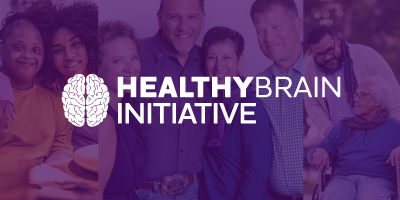Alzheimer's and Public Health Action in Washington
Alzheimer’s disease is a growing public health crisis in Washington, and the impact of Alzheimer’s is projected to rise. A comprehensive public health approach is essential to improve community health, support the well-being of those living with cognitive decline and their families, and reduce the risk of dementia throughout communities. The most recent data show:
127,000
people aged 65 and older are living with Alzheimer’s in Washington.
17% of people
aged 45 and older have subjective cognitive decline in Washington.
254,000
family caregivers provide essential support to people living with dementia in Washington.
390 million
hours of unpaid care are provided by dementia caregivers in Washington.
$11 billion
is the value of unpaid care provided in Washington.
$747 million
is the cost of Alzheimer’s to the state Medicaid program.
Fact sheets on Alzheimer's and dementia in Washington
View and download state-specific fact sheets for the latest data on each topic:
Learn more about how these data are collected in the annual Alzheimer’s Disease Facts and Figures report and the Behavioral Risk Factor Surveillance System (BRFSS).
Public health progress in Washington
State, local, territorial and tribal health departments are key partners in implementing a robust public health response to dementia. The Washington State Department of Health (DOH) is improving brain health throughout the state.
The DOH has led a statewide effort to promote early dementia detection and planning, especially among high-risk communities. In partnership with community and faith-based organizations, they launched culturally tailored campaigns and pilot programs using trusted messengers to share information. With support from the BOLD program award, they expanded these efforts by funding 12 organizations to deliver education and outreach using a newly developed Brain Health and Dementia Awareness in Our Communities Curriculum, which includes information on risk reduction and brain health. These initiatives aim to increase awareness about dementia, improve health behaviors, and reduce dementia-related risks across the state.
Case study: Where Are We Now? Washington State, Five Years Later
Washington State’s Dementia Action Collaborative has continued and advanced several efforts to increase brain health among people who are African American, Asian, Pacific Islander and Hispanic/Latino. The partnership between Aging & Disability Services of King County and Center for MultiCultural Health (CMCH), initiated in 2018, continued to promote culturally tailored hand fans with brain health messages in its Memory Sunday project with African American churches. Read more about Washington in the Healthy Brain Initiative Road Map (PDF).
Working across the levels of prevention
Across the levels of prevention, the Washington State Department of Health implements public health programs and interventions to address Alzheimer's through:
- Risk reduction: Partnered with Washington State Local Health Jurisdictions to host an Alzheimer's and Dementia Care ECHO® Program for Public Health Professionals, engaging 31 participants from 15 public health agencies. Following the series, 88% reported increased discussions and 77% reported enhanced collaboration on dementia risk reduction efforts.
- Early detection and diagnosis: Partnered with the Washington State Dementia Action Collaborative to create, develop, and evaluate messages through a short-term digital awareness campaign promoting the value and importance of early detection, diagnosis and planning, including racial and ethnic groups who are at increased risk, and collaborates with community partners and media companies to continue to develop content and resources.
Developing public health infrastructure and expanding capacity
Public health programs are critical to helping people stay cognitively healthy throughout life. Health departments in Washington are developing infrastructure and expanding capacity through these programs:
- BOLD Program: Washington State Department of Health
- Risk Reduction Learning Collaboratives: Benton-Franklin Health District, Northeast Tri-County Health District
- HBI Road Map Strategists: Kitsap Public Health District, Northeast Tri-County Health District
- Alzheimer's and Dementia Care ECHO® Program for Public Health Professionals Pilot site with 15 local health jurisdictions in the state
Resources for public health professionals
Tools from the Alzheimer's Association provide public health strategies that public health professionals can use to improve brain health and support caregivers and people living with dementia in your community.
Contact us
Public health professionals can contact the Alzheimer's Association public health team for questions and support.
Learn MoreGet involved
Anyone can join the fight against Alzheimer's by getting involved with your local chapter.
Find Your Chapter





